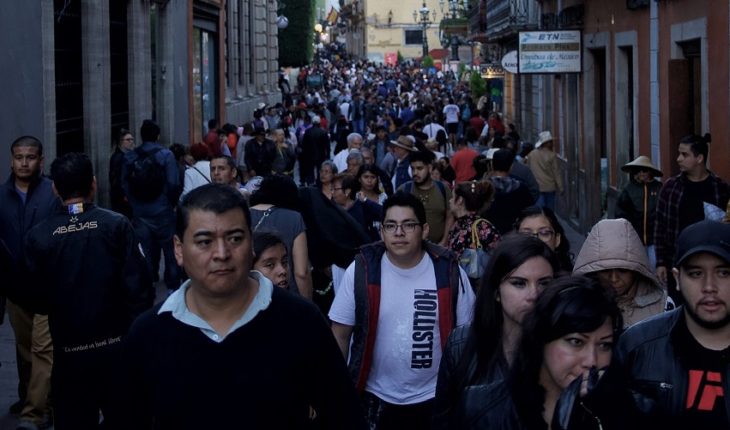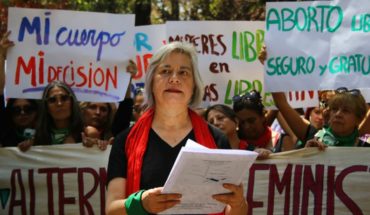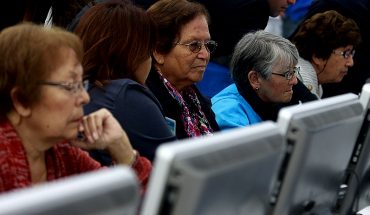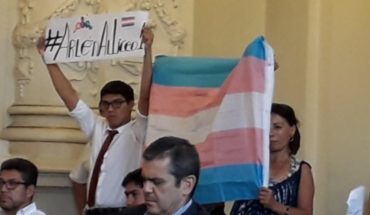the measurement of poverty in the period 2008-2016 of the National Council of evaluation of the policy for Social Development (Coneval) reveals that the majority of social deprivation decreased and, however, Mexico does not has been poverty really in the past 30 years. This failure is reflected in the high lack of access to social security and food still suffering from some population groups, such as women and young people, whose exercise of rights is systematically committed, concerns the Council.
This is because that the fight against poverty has had a quantitative approach ignored the quality of services, said the Executive Secretary of the Coneval, Gonzalo Hernández Licona. Public policies have focused on the coverage and not on effective access to social rights, by which the Council presented a series of indicators to measure poverty during the next administration, focusing on rights and their actual exercise.
“We need beyond the poverty measure because social development is more than that: not only is effective access to rights, that children go to school, they go to a school’s quality.” It is not enough that there is an affiliation to the popular insurance but there is quality in health services. That have to measure it so that we can close the gaps in a deeply unequal country”said Hernández Licona Animal politician.
Within the framework of the human rights day and the 70th anniversary of the Universal Declaration of human rights, the Coneval introduced two products that allow to evaluate the population effective access to social rights, trusting that it will serve to create a mechanism of inter-agency collaboration of real poverty combat and guarantee of rights.
The products are the book ‘Poverty and social rights in Mexico’ and the ‘diagnostic rights social 2018’, which identifies gaps in social groups that are at a greater disadvantage. The aim, explained the presenters, is that the country has a system of continuous information enabling to monitor the exercise of social rights, beyond the poverty indicators.
This system, according to Gonzalo Hernández, seeks to institutionalize measures – in addition to the poverty-to guide public policies focused on achieving quality and not only the coverage of the services. “So say the Governor ‘ hear, not only put strong floors, not only to make the child go to school – that lowering poverty-: is that child and that family to have effective access to full rights, to learn in school” explained the official.
However, so that effective access to rights is not only measured but guaranteed by the institutions, it would require that indicators were agreed not only by Coneval but by other public bodies, so that the Government focus on a handful of major objectives that are carried out by all orders of Government in a coordinated manner, said Hernández Licona.
“Poverty only realizes marginally inequality. Access to rights for equal opportunities directly gives you an entry to the inequality that is so large that there are in the country. “If that not her face, if we do not pursue it with public policy, could have an extreme poverty which goes down but without closing the gaps”, said the Executive Secretary of Coneval.
To this end, the National Institute of Social economy (dependent on welfare, before Social Development secretariat) is located in a planning stage to define new operating rules that allow the social sector of the economy protagonist of public policies, which should be ready in the first months of next year, said the director of the Institute, Juan Manuel Martínez.
“Everything that is in this publication, the orientation of social rights, is the reflection that we are having in the inner group of the Secretariat so that we can just have the regulatory changes that will move us,” Martinez said in an interview. He said that the first step for the secretariat will be rethinking their work, to not only look for generating social development in broad and ambiguous terms but the enforceability of rights.
The official said that the redesign of the Ministry of Social development – that began with its transformation into Department of welfare – is related to the objective of focusing policies on rights, which – to tell him – is reflected in the new setting up the structure of the Ministry. “We don’t want a mere fighting poverty but really the entire population has access to financial and productive means that guarantee the conception of their social rights,” he said.
For his part, Gonzalo Hernández said that the first step that the incoming Government must take to achieve these goals is that the measurement indicators of well-being – the joined other three or four specific poverty – are part of the National Development Plan ” “to go around the world on those goals and not disperse shares, because Mexico has so many needs that it is very tempting to want to fix many, and at the end not meet much”.
He added that it is easy to increase the coverage and test is that it has grown from 20 years ago, however, requires strict coordination with the States, especially in programmes relating to education and health. “Since decentralization, the responsibility is of States. Talking about the – so controversial – showings, if these guys were devoted to tighten the nuts to the Governors in the quality of health and education services, it would be a hit,”said Hernández Licona.
The presentation of the indicators was attended also Edgar Corzo, fifth visitor of the National Commission of human rights (CNDH) and the President of the Commission’s budget and public account of the Chamber of Deputies, Alfonso Ramírez Cuéllar. Officials agreed that to change the focus of social development policies by one of social rights requires that are enforceable, and that the measurement of poverty no longer be based only on the income and consider other factors such as the control of the market and prices.
translated from Spanish: What level of social services are Mexicans?
December 11, 2018 |





